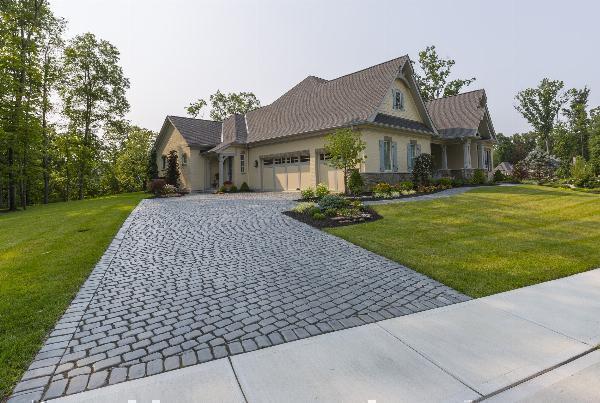Choosing the Right Material for Your Driveway

Strong 8k brings an ultra-HD IPTV experience to your living room and your pocket.
When it comes to enhancing the curb appeal and functionality of your property, driveways play a crucial role. Driveways not only provide a designated area for parking your vehicles but also contribute significantly to the overall aesthetic appeal of your home. Whether you are building a new driveway or renovating an existing one, choosing the right material is paramount. The material you select can impact the durability, maintenance requirements, and visual appeal of your driveway. In this guide, we'll explore various driveway materials and help you make an informed decision that suits your needs and preferences.
1. Concrete Driveways:
Concrete driveways are a popular choice for many homeowners due to their durability and versatility. They offer a smooth and even surface, making them ideal for parking cars and other vehicles. Concrete driveways can withstand heavy loads and are resistant to stains, making them relatively low maintenance. Additionally, they can be customized in terms of color and texture to complement your home's exterior. However, concrete driveways may develop cracks over time, especially in regions with extreme weather conditions.
2. Asphalt Driveways:
Asphalt driveways are another common option known for their affordability and quick installation process. They are particularly suitable for areas with cold climates as asphalt can withstand freezing and thawing without cracking. Asphalt driveways have a sleek black appearance that enhances the overall look of your property. They are also relatively easy to maintain, requiring periodic sealing to prevent deterioration. However, they may not be as durable as concrete and can show signs of wear and tear over time.
3. Gravel Driveways:
Gravel driveways offer a rustic charm and are a budget-friendly option for homeowners. They consist of loose gravel or stones that are compacted to create a stable surface. Gravel driveways allow for excellent drainage, preventing water from pooling or causing erosion. They are easy to install and can be customized by choosing different types of gravel for a unique look. However, gravel driveways require regular maintenance, such as replenishing the gravel and smoothing out uneven areas.
4. Paver Driveways:
Paver driveways are crafted from individual paving stones or bricks, offering a timeless and elegant appearance. They come in various colors, shapes, and patterns, allowing for endless design possibilities. Paver driveways are durable and resistant to cracking, and they can withstand heavy traffic without showing signs of wear. They are also relatively low maintenance, requiring occasional sweeping and resealing to preserve their beauty. However, the cost of paver driveways can be higher compared to other materials.
5. Concrete Resurfacing:
If you already have a concrete driveway that is showing signs of wear or has minor cracks, concrete resurfacing is a cost-effective option. This process involves applying a new layer of concrete over the existing surface, providing a fresh look without the need for a complete replacement. Concrete resurfacing can also incorporate decorative elements like stamps or stains to enhance the visual appeal of your driveway. It is a practical solution to restore the functionality and aesthetics of your driveway.
Factors to Consider When Choosing a Driveway Material:
1. Durability: Consider the longevity of the material and its ability to withstand heavy traffic, weather fluctuations, and other environmental factors.
2. Maintenance: Evaluate the maintenance requirements of each material, including cleaning, sealing, repairs, and overall upkeep.
3. Aesthetics: Choose a driveway material that complements your home's architectural style and enhances its curb appeal.
4. Cost: Compare the initial cost as well as long-term expenses associated with each material, including installation, maintenance, and potential repairs.
5. Climate Compatibility: Take into account your region's climate and choose a material that can withstand local weather conditions effectively.
Conclusion:
Selecting the right material for your driveway is a decision that requires careful consideration of various factors. Whether you opt for concrete, asphalt, gravel, pavers, or concrete resurfacing, each material has its advantages and considerations. Driveways Middlewich residents can choose from a range of options based on their preferences, budget, and property requirements. By understanding the pros and cons of each material and assessing your specific needs, you can create a driveway that not only enhances the functionality of your home but also adds to its overall beauty and value.
Note: IndiBlogHub features both user-submitted and editorial content. We do not verify third-party contributions. Read our Disclaimer and Privacy Policyfor details.




